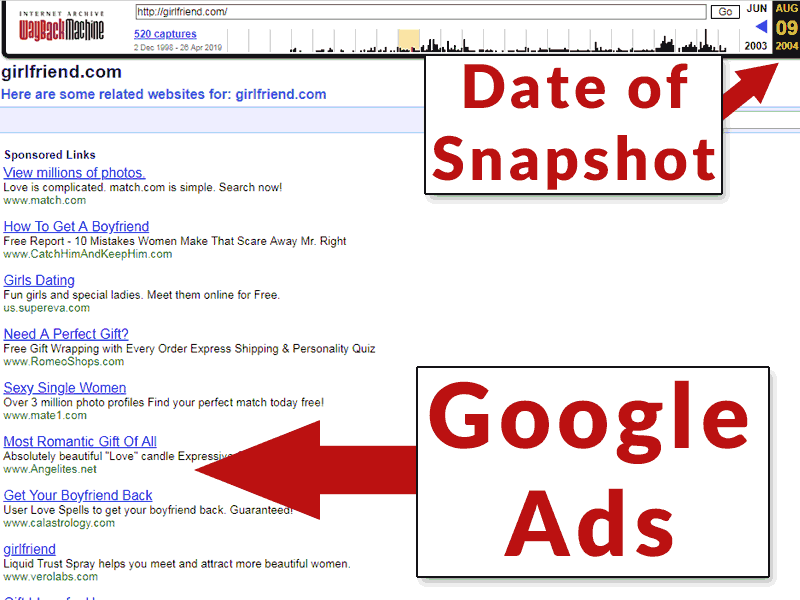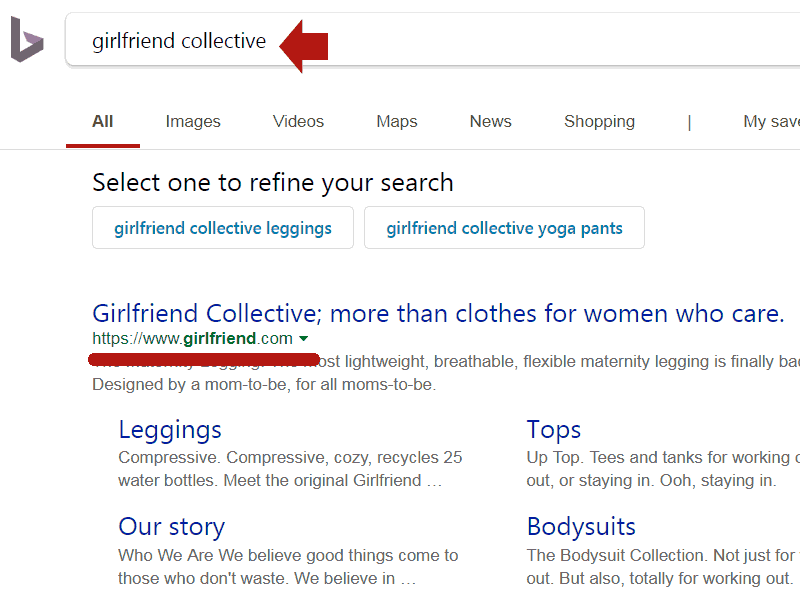19 May Google on Domain Penalties that Don’t Expire via @martinibuster
Google’s John Mueller was presented with a peculiar situation of a website with zero notifications of a manual action that cannot rank for it’s own brand name. Mueller analyzed the situation, thought it through, then appeared to reach the conclusion that maybe Google was keeping it from ranking.
This is a problem that has existed for a long time, from before Mueller worked at Google. It’s a penalty that’s associated with a domain that remains even if the domain is registered by a new buyer years later.
Description of the Problem
The site with a penalty has not received notices of a manual penalty.
That’s what makes it weird because, how can a site be penalized if it’s not penalized, right?
The site had an influx of natural links due to word of mouth popularity. Yet even with those links, the site cannot rank for it’s own name or a snippet of content from it’s home page.
Had those natural links or the content been a problem then Google would have notified the site owner. So the problem is not with the links or the content.
Nevertheless, the site owner disavowed old inbound links from before he purchased the site but the site still did not rank.
Here is how the site owner described the problem:
“We bought the domain three years ago to have a brand called Girlfriend Collective, it’s a clothing company on the Shopify platform.
We haven’t had any… warnings from our webmaster tools that says we have any penalizations… So I was just wondering if there was any other underlying issues that you would know outside of that…
The domain is girlfriend.com and the query would be Girlfriend Collective.
It’s been as high as the second page of the SERPs, but… we get quite a few search queries for our own branded terms… it will not show up.
My assumption was that before we bought it, it was a pretty spammy dating directory.”
John Mueller’s response was:
“I can double check to see from our side if there’s anything kind of sticking around there that you’d need to take care of…”
It appears as if Mueller is being circumspect in his answer and doesn’t wish to say that it might be a problem at Google. At this point, he’s still holding on to the possibility that there’s something wrong with the site. You can’t blame him because he probably gets this all the time, where someone thinks it’s Google but it’s really something wrong with the site.
Is There Something Wrong with the Domain Name?
I checked Archive.org to see what it’s history was. It was linking to adult sites prior to 2004 and sometime in mid 2004 the domain switched it’s monetization strategy away from linking to adult sites to displaying Google ads as a parked domain.
A parked domain is a domain that does not have a website on it. It just has ads. People used to type domain names into the address field and sites like Girlfriend.com would monetize the “type-in” traffic with Google AdSense, usually with a service that shows ads on the site owner’s behalf in exchange for a percentage of the earnings.
The fact that it was linking to adult sites could be a factor that has caused Google to more or less blacklist Girlfriend.com and keep it from ranking.
Domain Related Penalties Have Existed for a Long Time
This has happened many times over the years. It used to be standard to check the background of a domain before purchasing it.
I remember the case of a newbie SEO who couldn’t rank for his own brand name. Another SEO who was more competent contacted Google on his behalf and Google lifted the legacy domain penalty.
The Search Query
Mueller referred to the search queries the site owner wanted to rank for as being “generic” and commented that ranking for those kinds of “generic” terms is tricky.
This is what John Mueller said:
“In general, when it comes to kind of generic terms like that, that’s always a bit tricky. But it sounds like you’re not trying to rank for like just… girlfriend. “
However the phrase under discussion was the company name, Girlfriend Collective, which is not a generic phrase.
It could be argued that the domain name is not relevant for the brand name. So perhaps Mueller was referencing the generic nature of the domain name when he commented on ranking for “generic” phrases?
I don’t understand why “generic” phrases entered into this discussion. The site owner answered Mueller to reinforce that he’s not trying to rank for generic phrases, that he just wants to rank for his brand name.
The search phrase the site owner is failing to rank for is Girlfriend Collective. Girlfriend Collective is not a generic keyword phrase.
Is the Site Poorly Optimized?
When you visit the website itself, the word Collective does not exist in the visible content.
The word “collective” is nowhere on the page, not even in the footer copyright. The word is there, but it’s in an image, it has to be in text for Google to recognize it for the regular search results.
That’s a considerable oversight to omit your own brand name from the website’s home page.


- The brand name exists in the title tag and other meta data.
- It does not exist in the visible content where it really matters.
- The word collective is not a part of the domain name.
A reasonable case could be made that girlfriend.com does not merit ranking for the brand name of Girlfriend Collective because the word collective only exists in the title tag of the home page, not on the page itself.
Google Does Not Even Rank it for Page Snippets
However that reasonable case falls apart upon closer scrutiny. If you take any content from the page and search with that snippet of content in Google, you’ll see that the domain name does not even rank for the content that is on it’s own page.
The site is fully indexed, but the content is not allowed to rank.
I searched for the following phrases but only found other pages and social media posts ranking in Google, not Girlfriend.com:
- “Five classic colors made from recycled water bottles.”
- “A bunch of old water bottles have never looked so good.”
That first phrase, “Five classic colors…” doesn’t rank anywhere on Google for the first several pages.
But as you can see below, Girlfriend.com ranks #6 in Bing:

 Bing has no trouble ranking Girlfriend Collective for a snippet of text taken from the home page. Google does not show it at all. This points to this issue being something to do with Google and not with the site itself.
Bing has no trouble ranking Girlfriend Collective for a snippet of text taken from the home page. Google does not show it at all. This points to this issue being something to do with Google and not with the site itself.Even though Girlfriend.com appears to fall short in its search optimization, that is not the problem. The problem is that Google is preventing any content from that domain from ranking.
The reason Google is preventing that content from ranking is because the domain was problematic in the past. At some point in its history it was filtered from ranking. It’s a Legacy Google Penalty.
Checking the snapshot of girlfriend.com via Archive.org shows that it was being used to promote adult websites prior to 2004.
This is what it looked like sometime in 2004 and onward. It appears to be a parked domain that is showing Google AdSense ads.

 This is a snapshot of Girlfriend.com circa 2004. It wasn’t a directory as the site owner believed. Checking the HTML source code reveals that the page is displaying Google AdSense ads. That’s what a parked domain looked like.
This is a snapshot of Girlfriend.com circa 2004. It wasn’t a directory as the site owner believed. Checking the HTML source code reveals that the page is displaying Google AdSense ads. That’s what a parked domain looked like.Parked domains used to be able to rank. But at some point after 2004 Google stopped ranking those pages.
There’s no way to speculate if the domain received it’s penalty before 2004 or after.
Site Can’t Rank for it’s Own Brand Name
There are many reasons why a site can’t rank for it’s own domain name or words from it’s own pages. If you suspect that your site may be suffering from a legacy Google penalty, you can verify the previous content by checking Archive.org.
Archive.org is a non-profit that stores snapshots of what web pages look like. Archive.org allows you to verify if your domain was previously used by someone else to host low quality content.
Unfortunately, Google does not provide a way to contact them to resolve this matter.
Bing Ranks Girlfriend.com for Girlfriend Collective
If there was a big problem with links or content on Girlfriend.com that was keeping it from ranking on Google, then it would very likely be apparent on Bing.
Bing and Google use different algorithms. But if there was something so massively wrong with Girlfriend Collective, whether site quality or a technical issue, there would be a high probability that the massive problem would keep it from ranking at Bing.
Bing has no problem ranking Girlfriend.com for it’s brand name:

 Bing ranks Girlfriend.com in a normal manner. This may be proof that there is no major issue with the Girlfriend.com site itself. The problem may be at Google.
Bing ranks Girlfriend.com in a normal manner. This may be proof that there is no major issue with the Girlfriend.com site itself. The problem may be at Google.Google’s John Mueller Admits it Might be Google
After listening to how the site owner has spent three years waiting for the legacy domain penalty to drop off, three years of uploading disavows, three years of bidding on AdWords for it’s own brand name, John Mueller seemed to realize that the issue was not on the site owner’s side but on Google’s side.
This is what John Mueller offered:
“I need to take a look to see if there’s anything sticking around there because it does seem like the old domain was pretty problematic. So that… always makes it a little bit harder to turn it around into something reasonable.
But it feels like after a couple of years that should be possible. “
In the end, Mueller admitted that it might be something on Google’s side. However an issue that remains is that there is no solution for other publishers. This is not something a publisher can do on their own like a disavow. It’s something a Googler must be made aware of in order to fix.
Watch the Google Webmaster Hangout here
Screenshots by Author, Modified by Author
Sorry, the comment form is closed at this time.